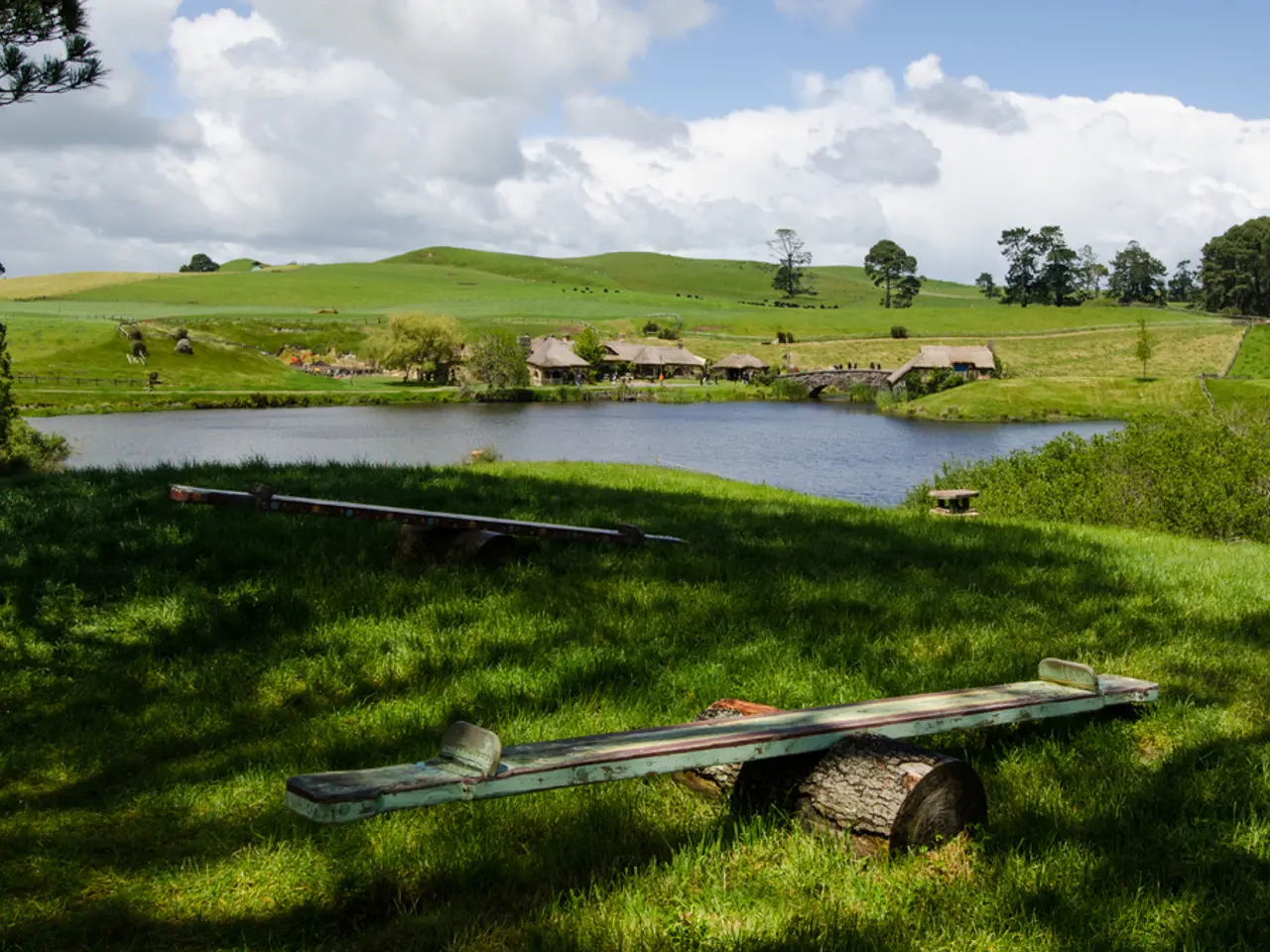Environmentalists anticipate backing from Il Darkhan and lawmakers as they voice concerns over Merzlota, rivers, forests, and radiation issues.
In the vast and icy expanse of Yakutia, a region known for its abundant natural resources, a series of contentious issues have arisen regarding the impact of mining activities and logging on the region's precious water resources and permafrost.
Recently, a roundtable organised by the republican public movement "Protect Nature of Yakutia" discussed the detrimental effects of gold mining and other mineral resources on the republic's water resources. The concerns raised were not just theoretical; they stemmed from the potential risks posed by radioactive ore transportation and the need for proper protection of territories in the deltas of the Amga and Timpton rivers.
Proposals have been made to bring these issues to parliamentary hearings, with some suggesting that the territories in question should be granted the status of federally protected territories. However, the safety of radioactive ore transportation remains a point of contention, as residents expressed dissatisfaction during public hearings in 2017, leading to the rejection of the project by the Yakut public.
Russian scientists and mining companies have proposed developing the Tomtor rare earth deposit in the Olenyok region, with assurances of strict regulatory controls, specialized containment, and monitoring procedures to manage the radioactivity of the ores. The deposit, located in the Oleneksky District, contains radioactive elements such as uranium, thorium, and thallium, raising concerns about the potential environmental consequences.
The development of the Tomtor deposit of rare earth metals is becoming a matter of national importance, but not without controversy. Environmental activists in Yakutia have proposed a ban on industrial logging, preservation of the permafrost, and keeping rivers clean to the Head of Yakutia, Il Tumen deputies, and the State Duma. Dr. Alexander Fedorov, a permafrost scientist, warned of potential negative environmental consequences from large-scale industrial logging in Yakutia.
Planting tree saplings in clear-cut areas is often suggested as a solution to protect the permafrost layer, but according to Dr. Fedorov, this is not necessarily effective. Nature needs to prepare the soil itself, and planting saplings in large areas is not efficient in the region. Without forest regeneration since the mid-1980s, signs of permafrost degradation are visible, and industrial logging could potentially lead to an ecological disaster.
The issue of ensuring safety during the transportation of radioactive ore across Yakutia's territory has once again become relevant, with concerns about the potential threat to the groundwater layer from gold mining activities. The gradual increase in average annual temperature since the late 20th century is reflected in the state of permafrost in the republic, making the need for environmental protection more urgent.
Clean natural water sources are becoming increasingly significant on the international environmental agenda, according to UN experts. Without public hearings and local resident consent, licenses for gold exploration and mining in the Timpton River and its tributaries were issued, leading to the river's pollution and discontent among residents. A regulation should be established to outline where and how logging can occur under the region's conditions, with industrial logging not permitted due to climate change.
Alexander Zhuravsky, the leader of the republican public environmental movement "Protect Nature of Yakutia," reported this threat. Representatives of the logging industry argue that significant amounts of forest are being cut down for residential heating and private housing construction, but these volumes are incomparable to industrial logging.
Yakutia's water resources may become in high demand on the international market, similar to gold and diamonds. However, the potential economic benefits must be weighed against the environmental costs, as the Russian Federation's treasury may suffer enormous losses due to the threat of polluting the groundwater layer from gold mining activities in Yakutia. The succession of landscapes in the region involves the growth of mugwort, shrubs, birch, and larch over time, with a full-fledged larch forest growing after 130 years.
In conclusion, the issues surrounding resource extraction and environmental protection in Yakutia are complex and multifaceted. Balancing economic development with environmental preservation is a challenge faced by many regions, but the unique conditions of Yakutia, with its fragile permafrost and precious water resources, make this task particularly urgent.








